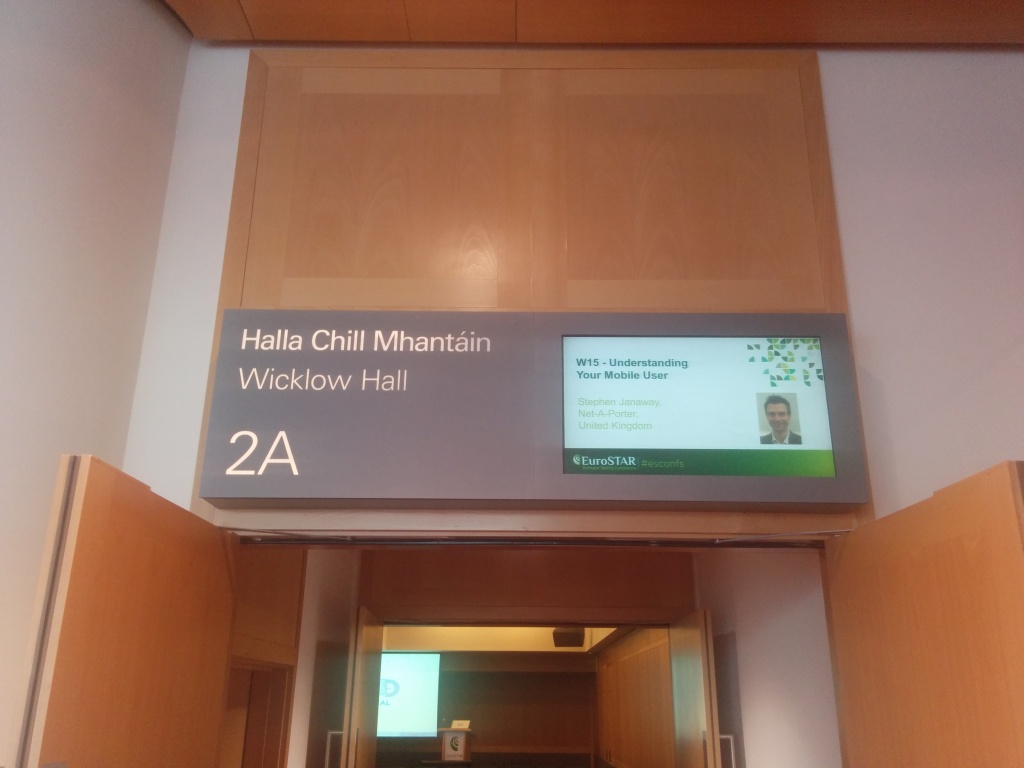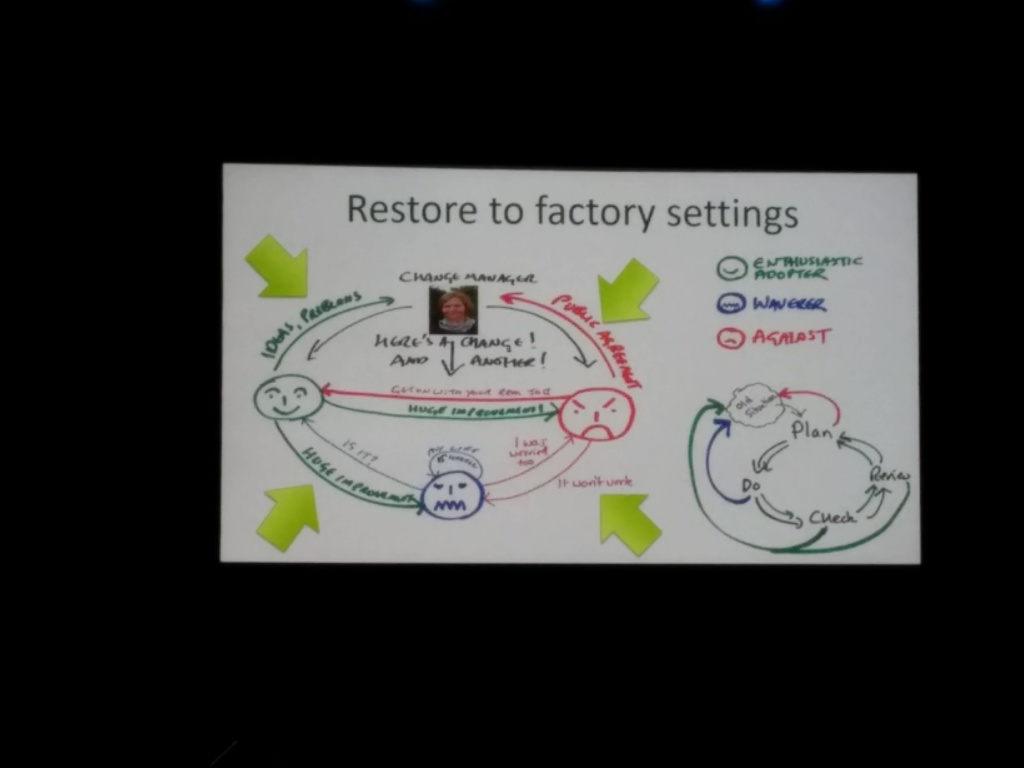This is the second part of my review of EuroSTAR 2014. Check here for day 1.
Day 2
Day 2 started with Isabel Evans giving her experiences of a change project that went wrong. There was a lot of things to learn from here experiences but the main thing I took away was “it’s alway about the people”. People are the main factor in software development and the main factor in change. Understanding them if the key to effective change.
Here’s my notes from her session.
Next up I saw Michael Bolton give a very interesting and interactive session called ‘Every Tester Has a Price: Sources of Product and Project Information’. In it we went through different information sources and produced a large and detailed mindmap. I captured some of it below:
Note – it’s not complete and I need to get the rest of it from Michael.
Following Michael’s session I caught Kristoffer Nordström’s session on Gameification. This was a great personal account of how Kristoffer introduced gameification to a project he was working on, and what the results were. Certainly something that I’d like to see if I can use where I work.
My final session of the morning was another case study, this time from James Christie. James gave a very detailed and interesting study of a project he worked on for the UK government, whose primary goal seemed to be for the project not to appear in the UK news/ satire magazine Private Eye. While the project did not fail, (the programme it was part of did), it placed a great strain on the people involved and certainly was not the sort of project James would want to be involved with again. There were some clear lessons to learn, hopefully captured in my notes below.
After lunch it was my turn to talk about “Understanding Your Mobile User”. I was lucky, I had a good audience and they asked some great questions. 
I spoke about ways you could understand mobile users, and why understanding the user is so important when mobile testing.
The final keynote of the day was from Julian Harty, who spoke about ‘Software Talk: Are We Listening’. Julian gave us some hints and tips on how we can listen to software, through analytics for example.
What happened next was a little bizarre. A guy from Smartbear got up on the stage and sang a song about testing, to the tune (and inspired by the lyrics) of Frozen, the Disney kids film. Not my cup of tea but some people enjoyed it I guess.
 Then it was time for the Gala party – a great night at Croke Park, home of the GAA.
Then it was time for the Gala party – a great night at Croke Park, home of the GAA.





Thanks for the kind words Stephen. I’ve just one quibble. The project wasn’t considered a failure. That was one of my objections. We were only a bit late, not much over budget, and the system worked in the end.
The trouble was that it was an insane approach, and it worked only because of heroic efforts by the project team, especially the testers (thanks hugely to the deputy TM while I was immersed in the mandatory documentation) who did whatever was necessary, including ignoring and subverting the official process. The approach put huge strain on the people involved, and it was wildly inappropriate for a fast, pilot project of that sort at the start of a large programme.
Nevertheless, there was absolutely no intention of varying, or improving, the approach with the main programme. It was the programme that failed, and not our particular project. I had had enough and could see the crash coming, so I resigned.
Thanks for clarifying that James, looks like I misunderstood. I’ve updated the post to reflect the change.